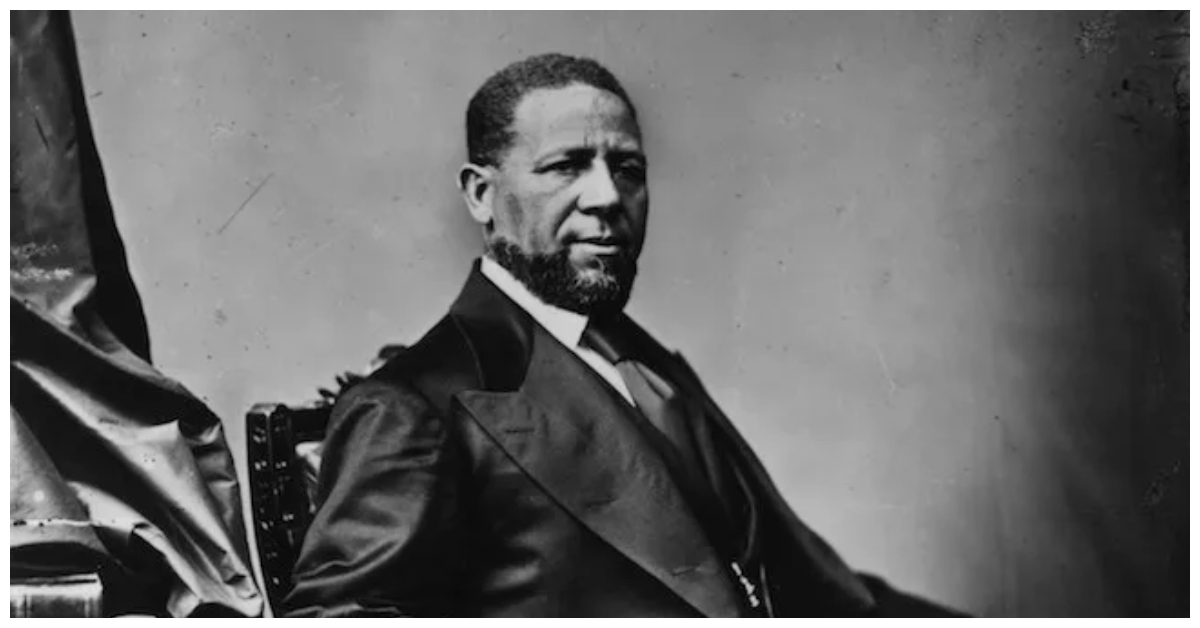On February 25, 1870, Hiram Revels made history by becoming the first African American to serve in the U.S. Senate. The event marked a monumental shift in American politics, occurring just weeks after the ratification of the 15th Amendment, which prohibited racial discrimination in voting. Revels’s swearing-in ceremony was met with applause from those who knew the significance of the moment—an African American taking a seat in the nation’s highest legislative body during the Reconstruction era.
The Path to the Senate: A Civil Rights Advocate
Born on September 27, 1827, in Fayetteville, North Carolina, Hiram Revels was a free man raised by a Baptist preacher. His early life was dedicated to education and religion. Revels attended private school in his youth and went on to study theology, eventually becoming a minister in the African Methodist Episcopal Church.
During the Civil War, Revels was a chaplain for African American soldiers and advocated for the education of freed slaves. After the war, he became involved in politics, serving as an alderman in Natchez, Mississippi, and later as a state senator. His political influence grew as the Republican Party dominated Mississippi’s legislature, pushing for civil rights reforms and equality.
Revels Elected to the Senate Amidst a Changing Nation
In January 1870, Mississippi’s state legislature sought to fill vacancies in the U.S. Senate, and Revels was elected to represent the state. This election was symbolic, not just for Mississippi but for the nation, as it came at a time when the country was struggling with issues of racial equality.
Revels’s election was strongly supported by the state’s black legislators, who believed that his presence in the Senate would help dismantle racial prejudices. As Revels later recalled, it was seen as an opportunity to weaken the color line in American politics.
The Senate Challenge and Victory
Revels faced immediate opposition upon his election. Some senators questioned his citizenship, arguing that he had not been a U.S. citizen for the required nine years, referencing the 1857 Dred Scott decision. However, Revels’s supporters quickly dismissed these claims, asserting that the Fourteenth Amendment had already overturned the Dred Scott ruling. With the support of his fellow senators, Revels was finally sworn in on February 25, 1870, after a decisive vote of 48 to 8.
Fighting for African American Rights in the Senate
Once in office, Revels wasted no time advocating for civil rights. He delivered a powerful maiden speech, opposing measures that would prevent African Americans from holding state office in Georgia. His speech was grounded in the belief that African Americans had earned the right to participate fully in the political system. Revels used his position in the Senate to champion education and fight racial segregation, key issues for African Americans at the time.
Despite his brief tenure, Revels left a lasting impact on the nation’s politics. He served for just one year, but his voice resonated far beyond his time in office. Revels’s efforts to promote equality and justice would lay the groundwork for future generations of African Americans in politics.
The Legacy of Hiram Revels
Revels’s journey didn’t end with his Senate term. After leaving Washington, he continued to fight for education and civil rights. He later became the president of Alcorn College, an institution founded for African American students in Mississippi. Revels’s achievements are a testament to the progress made during the Reconstruction era, despite the ongoing struggles for equality.
Hiram Revels’s election to the U.S. Senate opened doors for future African American politicians. His courage and dedication to justice helped pave the way for others, like Blanche K. Bruce and Edward Brooke, who followed in his footsteps.





